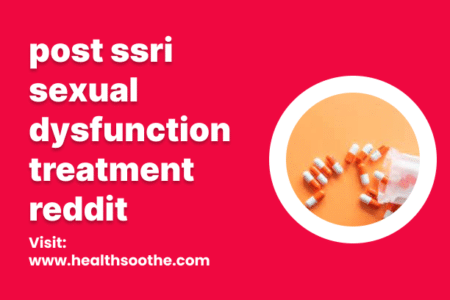Have you been prescribed antidepressants? These medications are taken by eleven percent of Americans over the age of twelve.
Even though they are effective in the treatment of depression, these drugs have a tendency to cause undesired side effects. Weight gain is among the most common adverse effects, given a quarter of the people using them add a few extra pounds.
Naturally, individuals react to these drugs in different ways. A consultation with your prescriber is always recommended if you experience anything out of the ordinary.
Make sure you learn how antidepressants affect the increase in body weight.
What’s the connection?
The connection between antidepressants and weight gain is undeniable, even though experts are still unable to understand the exact reasons for it. According to one of their theories, these medications are believed to affect hunger levels and metabolism. Antidepressants are known to affect serotonin, referring to the neurotransmitter in charge of regulating mood, anxiety, and appetite. Such changes increase the cravings for foods rich in carbohydrates, including pasta, bread, etc.
When depressed, individuals experience changes in appetite. Some individuals might be hungrier than usual, while others tend to lose appetite. Consequently, those who feel less hungry might gain weight when starting to take antidepressants, given their appetite returns to normal. The connection between weight gain and antidepressants is still to be explored. Anyhow, depression is thought to result in inactivity and fatigue, which lead to gaining a few extra pounds.
According to certain studies, weight gain caused by such medications occurs due to hormonal and glucose metabolism changes. Antidepressants have numerous effects that result in an increase in body weight, including appetite stimulation, boosted carbohydrate cravings, resting metabolic rate changes, central nervous system interference, interference with noradrenaline production, and others.
Antidepressant types that increase bodyweight
Some types of medications are likelier to cause weight gain than others and have it listed as a potential side effect. These drugs include tricyclic antidepressants (TCAs), monoamine oxidase inhibitors (MAOIs), and selective serotonin reuptake inhibitors (SSRIs.) TCAs are among the earliest types of such medications, meaning they aren’t prescribed too often because of having many side effects.
 Nevertheless, TCAs are still preferred by some people who fail to respond to modern treatments. The most commonly prescribed TCAs include amitriptyline, amoxapine, doxepin, desipramine, imipramine, trimipramine, nortriptyline, protriptyline, etc. Another type of early antidepressant is MAOIs, which are usually replaced by newer medications due to a couple of adverse effects. Check out how monoamine oxidase inhibitors work.
Nevertheless, TCAs are still preferred by some people who fail to respond to modern treatments. The most commonly prescribed TCAs include amitriptyline, amoxapine, doxepin, desipramine, imipramine, trimipramine, nortriptyline, protriptyline, etc. Another type of early antidepressant is MAOIs, which are usually replaced by newer medications due to a couple of adverse effects. Check out how monoamine oxidase inhibitors work.
Individuals taking MAOIs have to make restrictions to their diets, as such drugs might elevate blood pressure when taken in combination with certain medications and foods. Nevertheless, they are effective in relieving depression in people who experience no improvement by taking other drugs. MAOIs that might increase bodyweight in users include phenelzine, isocarboxazid, and tranylcypromine. The first one is considered the most likely to induce weight gain.
The most usually prescribed medications for depression are SSRIs, which are associated with both weight loss and gain. The former tends to happen when using them in the short-term, whereas the latter occurs when using SSRIs in the long term. The most commonly used selective serotonin reuptake inhibitors are citalopram, fluoxetine, sertraline, and paroxetine.
The weight gain side effect doesn’t just depend on the period of taking them but on their type as well. Consequently, paroxetine is the likeliest to add a few pounds to users, whereas sertraline isn’t. In order to avoid such an effect, users of SSRIs are advised to avoid unhealthy habits like using tobacco, not exercising, etc.
What to do?
If your antidepressant therapy is making you add a couple of extra pounds, you’re recommended to get a complete physical checkup to see if the drugs are to blame for it. Sometimes the increase in body weight is induced by a medical condition, not medications, such as hypothyroidism. See this link, https://www.healthline.com/health/hypothyroidism/symptoms-treatments-more, for everything you need to know about hypothyroidism.
Besides doing a physical checkup, you should also consult your prescribing physician. In case you experience weight gain triggered by taking antidepressants, have a conversation with your prescriber to see if he/she is willing to help you with handling the side effects. Not all healthcare providers cope with side effects in the same manner.
Make sure you ask the right questions during the consultation. You should learn whether certain adverse effects are normal for the medication you are taking. Remember to ask for advice related to minimizing the adverse effects. Your physician might end up prescribing you another drug or changing your dose. These concerns are best addressed by a doctor who is capable of fully understanding your situation.
The bottom line
Individuals experiencing this side effect should consult a doctor before switching to another antidepressant.
Your physician provides the best advice!





